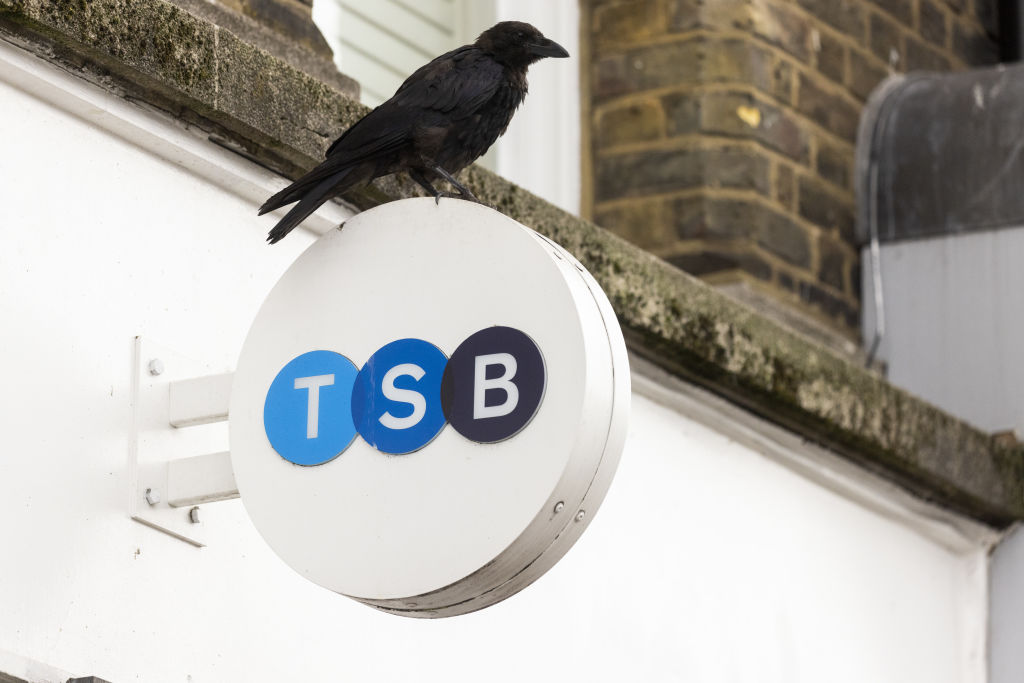TSB did not breach 'mortgage prisoner' contracts, judge rules
The preliminary ruling could undermine a class action being brought by 'mortgage prisoners', who claim they have been unfairly tied in to high interest rates.


Get the latest financial news, insights and expert analysis from our award-winning MoneyWeek team, to help you understand what really matters when it comes to your finances.
You are now subscribed
Your newsletter sign-up was successful
Want to add more newsletters?

Twice daily
MoneyWeek
Get the latest financial news, insights and expert analysis from our award-winning MoneyWeek team, to help you understand what really matters when it comes to your finances.

Four times a week
Look After My Bills
Sign up to our free money-saving newsletter, filled with the latest news and expert advice to help you find the best tips and deals for managing your bills. Start saving today!
TSB did not breach the terms of its home loans by charging ‘mortgage prisoners’ higher rates, a judge has ruled in a High Court preliminary hearing today (25 September).
The high street bank is in the process of being sued in a class action - the first of its kind - which could act as a test case for further claims against other mortgage lenders. The claimants allege they were unfairly locked into paying an excessively expensive standard variable rate (SVR). They fell onto these deals after the collapse of their original lender, Northern Rock, in 2007.
While the ruling does not mean they have lost the case - the court hearing in question was determining legal points ahead of a potential full trial - it could serve to undermine one of the key allegations the claimants are making. Namely, that TSB should have charged them at its SVR rather than at that of its Whistletree brand.
MoneyWeek
Subscribe to MoneyWeek today and get your first six magazine issues absolutely FREE

Sign up to Money Morning
Don't miss the latest investment and personal finances news, market analysis, plus money-saving tips with our free twice-daily newsletter
Don't miss the latest investment and personal finances news, market analysis, plus money-saving tips with our free twice-daily newsletter
In a statement, Harcus Parker - the legal firm representing the people who describe themselves as mortgage prisoners - pointed out that further key elements of the claim had yet to be ruled on. For example, the court has not yet determined whether the clauses within the claimants’ contracts were fair.
Matthew Patching, a lawyer for the firm, told the Reuters news agency: "Although [the claimants] are disappointed that the result of the preliminary issues trial is not to immediately determine the claims in their favour, they are looking forward to progressing their claims to the next stage and – ultimately – to a full trial." TSB has welcomed the ruling.
What is the TSB ‘mortgage prisoner’ claim about?
The lawsuit centres around TSB’s Whistletree brand. Set up in 2016, the brand was created to look after former Northern Rock mortgage customers whose loans were acquired by TSB in 2015.
These mortgage payers already felt they had become ‘mortgage prisoners’ given they no longer matched the affordability requirements brought in by the government after the 2008 financial crash, and were therefore unable to switch to a better deal. TSB has said it does not accept that the claimants can be classed as mortgage prisoners.
Mortgage prisoners are people who are unable to remortgage, and therefore fall onto an SVR they cannot leave. SVRs tend to offer expensive rates compared to fixed rate deals. As of 25 September, the average SVR is 7.99% while the average two-year fixed-rate mortgage is priced at 5.43%.
Harcus Parker has also claimed that its clients have been stuck on unfair SVR rates. When the preliminary hearing was confirmed, it argued that TSB was contractually “obligated to charge” its clients at the TSB SVR rather than the “separate, higher” Whistletree SVR. This product came in at a rate of 4.79% when Whistletree launched in July 2016 - 4.29 percentage points higher than the Bank of England base rate at the time, and subsequently fluctuated up and down with interest rates. The bank has denied that it had any such obligation.
The law firm is aiming to secure its claimants the difference between the interest they were charged and the TSB rate it has claimed they should have had access to. It has suggested that the compensation may be worth up to £50,000 per claimant, with 27,000 Whistletree customers potentially able to take part in the legal action. Around 2,000 people have signed up to be represented by Harcus Parker if its initial claim succeeds.
This case is expected to be a test case for other mass claims Harcus Parker is planning to bring on behalf of people who have described themselves as mortgage prisoners.
What did the ‘mortgage prisoner’ ruling say?
The preliminary hearing went before the High Court on 23 July, with the case’s judge, Nicholas Thompsell, making his ruling on 25 September. The hearing was intended to determine the legal points for any future trial, rather than rule on the case as a whole.
Harcus Parker, which was representing 392 former Northern Rock mortgage customers who were ultimately transferred to TSB (TSB has claimed it has not verified that all of them are or were its customers), was seeking to get the court to rule that TSB had breached the claimants’ contracts, both in explicit and implied terms.
Judge Thompsell concluded that TSB had not breached the “express terms” of the mortgage contracts held by the claimants. He said the Whistletree SVR should be seen as a “continuation of the original SVR originally operated by Northern Rock” instead of a new rate. In other words, TSB was allowed to put the mortgage payers onto the pricier Whistletree product instead of its own cheaper rate.
On whether TSB had broken the ‘implied’ terms of its mortgage contracts, the ruling said that the bank and Harcus Parker had agreed a proposition that decisions to vary interest rates should not be made in an unreasonable manner.
The judge said another hearing would be needed ahead of any full trial. He gave no date for when this should take place.
Get the latest financial news, insights and expert analysis from our award-winning MoneyWeek team, to help you understand what really matters when it comes to your finances.
-
 Can mining stocks deliver golden gains?
Can mining stocks deliver golden gains?With gold and silver prices having outperformed the stock markets last year, mining stocks can be an effective, if volatile, means of gaining exposure
-
 8 ways the ‘sandwich generation’ can protect wealth
8 ways the ‘sandwich generation’ can protect wealthPeople squeezed between caring for ageing parents and adult children or younger grandchildren – known as the ‘sandwich generation’ – are at risk of neglecting their own financial planning. Here’s how to protect yourself and your loved ones’ wealth.
-
 Thousands of Brits switch to Nationwide, Monzo and NatWest – which banks are least popular?
Thousands of Brits switch to Nationwide, Monzo and NatWest – which banks are least popular?We look at the most and least popular banks and building societies as current account bank switches reach a record high. Is it worth moving your money?
-
 Best and worst UK banks revealed
Best and worst UK banks revealedWe reveal the best UK banks – and the worst – when it comes to managing your money and good customer service. How does your provider compare?
-
 Best savings rates – earn as much as 4.5%
Best savings rates – earn as much as 4.5%Savings The best savings rates on the market pay up to 4.5% on your cash – but you will need to act fast before these top-paying accounts disappear
-
 The best 0% balance transfer credit cards
The best 0% balance transfer credit cardsCredit cards If you have credit card debt, 0% balance transfer credit cards can save you thousands and reduce your total cost of borrowing. We list the top deals available
